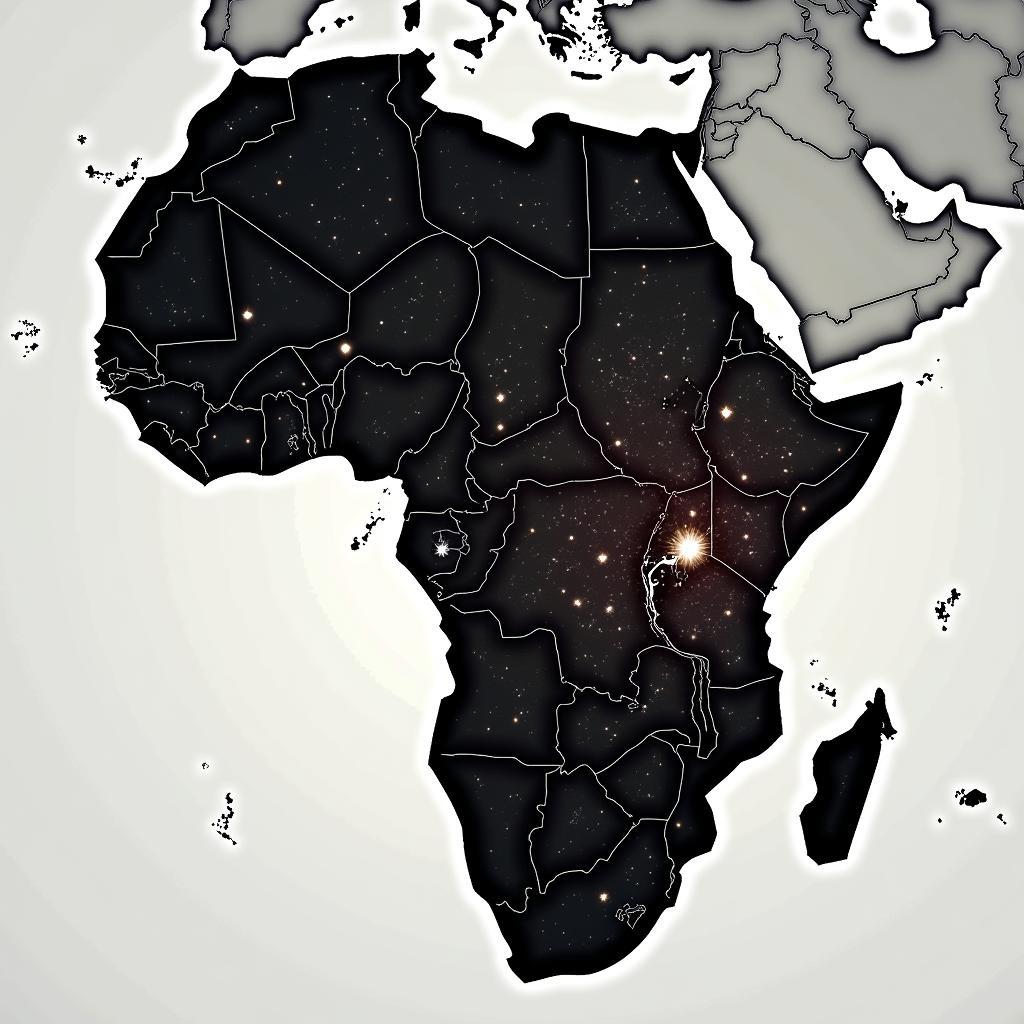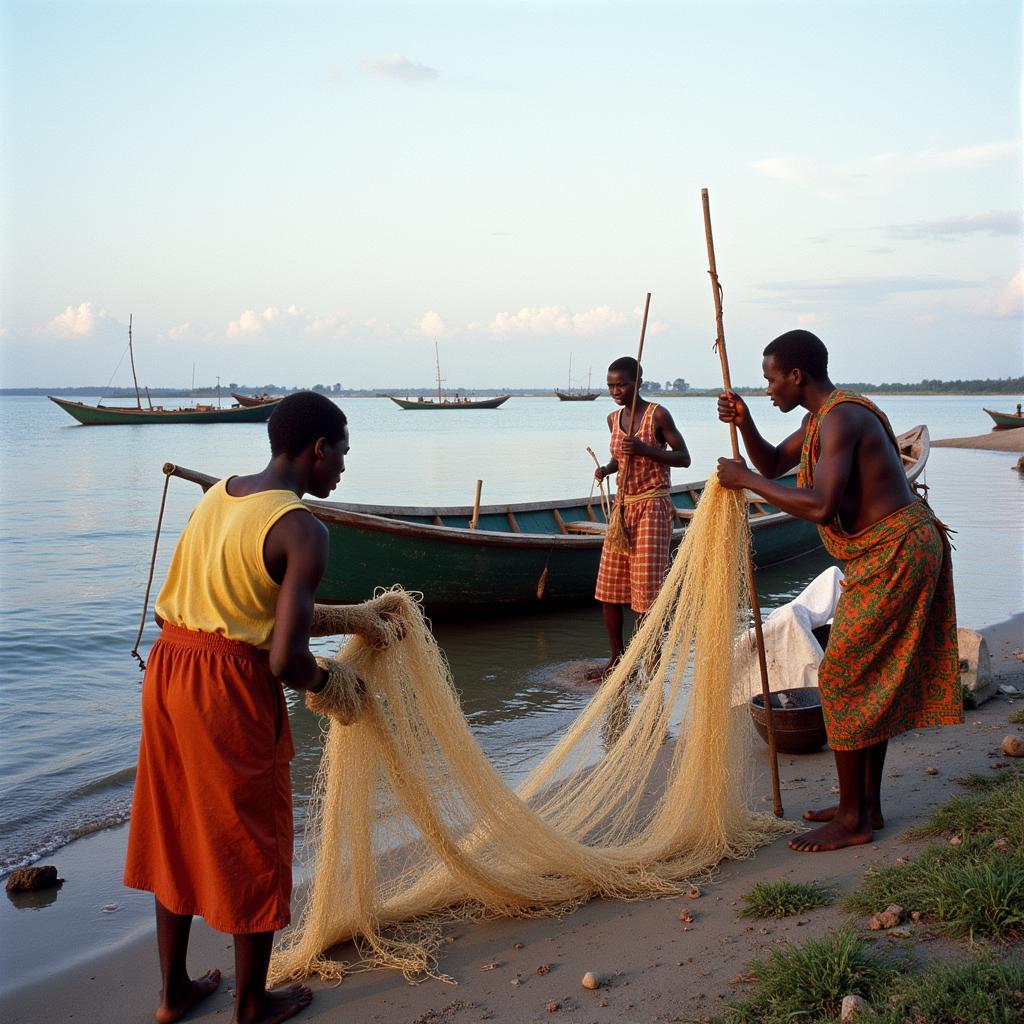Exploring the Diverse World of African Ecology
African Ecology is a vast and complex subject, encompassing the incredible biodiversity and intricate relationships between living organisms and their environment across the continent. From the lush rainforests of the Congo Basin to the arid landscapes of the Sahara Desert, Africa boasts an unparalleled array of ecosystems, each with its unique challenges and opportunities. Understanding these diverse ecosystems is crucial for conservation efforts and for appreciating the intricate tapestry of life that makes Africa so extraordinary.
One of the defining features of African ecology is its remarkable biodiversity. The continent is home to an estimated 25% of the world’s known species, including iconic animals like elephants, lions, and gorillas. This rich biodiversity is driven by a variety of factors, including the continent’s diverse climates, topography, and geological history. For example, the East African Rift Valley, a geological marvel, has created unique habitats that support a wide range of endemic species. The interplay between these factors has shaped the evolution of life on the continent, resulting in a remarkable array of adaptations and ecological interactions. For researchers, understanding the African Journal of Ecology author guidelines is crucial for contributing valuable knowledge to this field.
The Impact of Climate Change on African Ecology
Climate change poses a significant threat to African ecology, with rising temperatures, changing rainfall patterns, and increased frequency of extreme weather events already impacting vulnerable ecosystems. These changes have far-reaching consequences, affecting everything from the distribution of plant and animal species to the availability of water resources. For instance, the ongoing drought in the Horn of Africa has led to widespread livestock deaths and food shortages, highlighting the interconnectedness between ecological health and human well-being.
What are the long-term implications of climate change on African ecosystems? The answer is complex and depends on various factors, but scientists predict increased desertification, loss of biodiversity, and disruptions to crucial ecological processes. These changes not only threaten the survival of countless species but also pose significant challenges to human populations who rely on these ecosystems for their livelihoods.
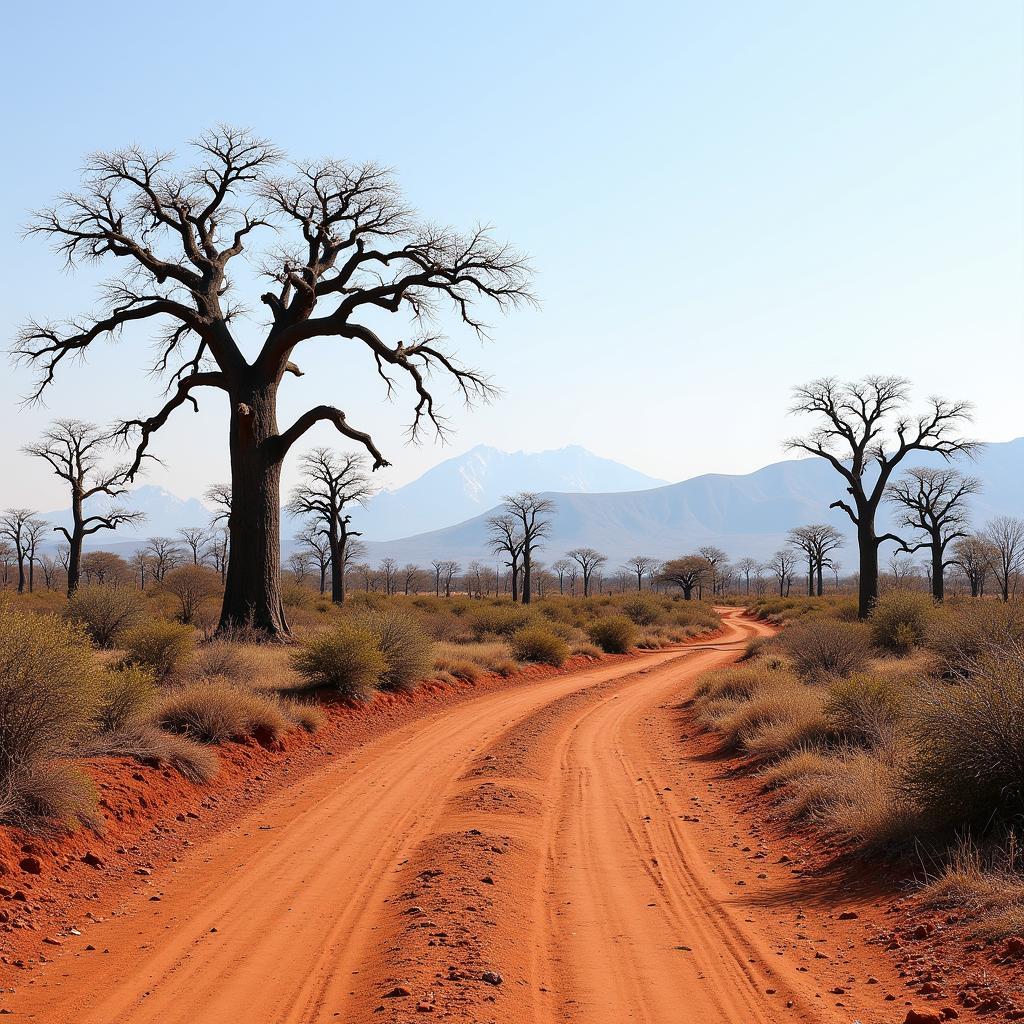 Impact of Climate Change on African Savanna
Impact of Climate Change on African Savanna
Conservation Efforts and Sustainable Development in Africa
Addressing the challenges facing African ecology requires a multi-faceted approach that integrates conservation efforts with sustainable development initiatives. Protecting vital habitats, combating poaching, and promoting sustainable land management practices are all crucial for ensuring the long-term health of African ecosystems. Furthermore, empowering local communities to participate in conservation efforts is essential, as they possess invaluable knowledge and a deep understanding of their environment. Submitting research to platforms like the African Journal of Ecology manuscript submission is essential for sharing these crucial findings.
The Role of Technology in African Conservation
Technology is playing an increasingly important role in African conservation, providing innovative tools for monitoring wildlife populations, combating poaching, and managing protected areas. Drones equipped with cameras and sensors can track animal movements, detect poaching activity, and monitor habitat changes, providing valuable data for conservationists. Similarly, advancements in DNA analysis are helping researchers track illegal wildlife trade and understand the genetic diversity of endangered species.
How can technology be further leveraged to improve conservation outcomes? Exploring new applications of artificial intelligence, machine learning, and remote sensing can enhance our ability to monitor ecosystems, predict threats, and develop effective conservation strategies.
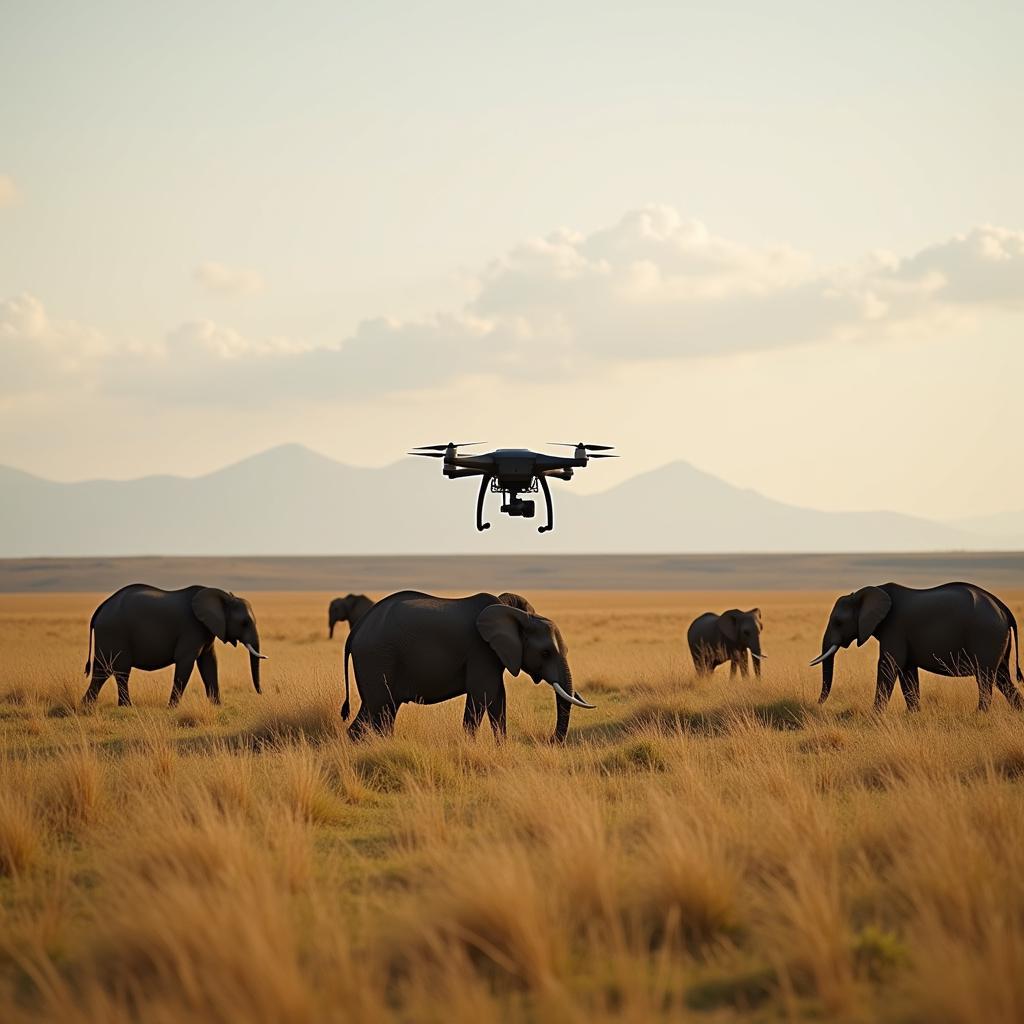 Drone Monitoring African Wildlife for Conservation
Drone Monitoring African Wildlife for Conservation
Dr. Anika Olumide, a renowned conservation biologist, emphasizes the importance of community involvement: “Successful conservation in Africa requires the active participation of local communities. Their knowledge and stewardship are essential for achieving long-term sustainability.” This highlights the need for collaborative approaches that empower local communities to become active partners in conservation. It’s important to understand the African Journal of Ecology abbreviation when researching and referencing this important publication.
The Future of African Ecology
The future of African ecology depends on our collective efforts to address the challenges and opportunities that lie ahead. By prioritizing conservation, promoting sustainable development, and empowering local communities, we can safeguard the continent’s incredible biodiversity and ensure a healthy future for both people and wildlife. Understanding how to properly cite this vital resource, as outlined in the African Journal of Ecology citation format, is crucial for academic integrity and dissemination of knowledge. The African Journal of Ecology and ecosystems impact factor demonstrates its importance in this field.
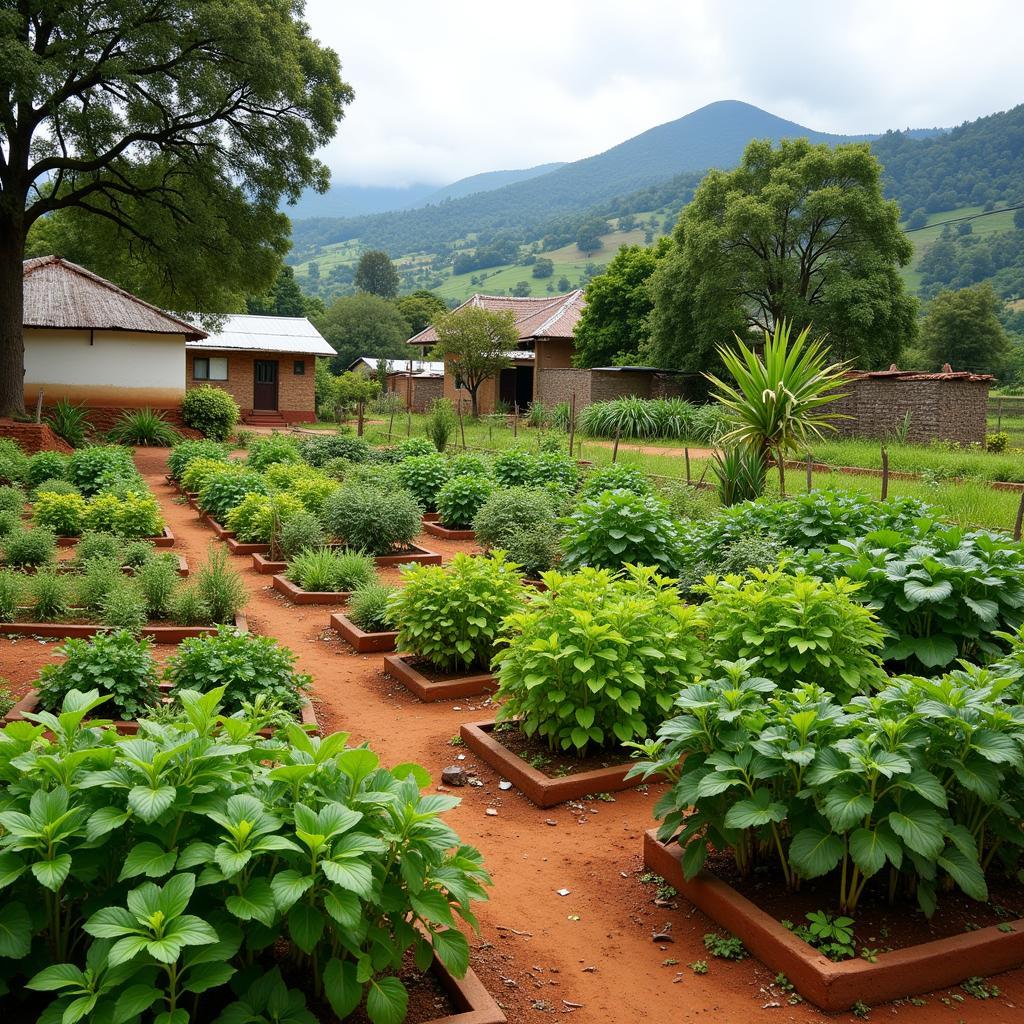 Sustainable Community Development in Africa
Sustainable Community Development in Africa
In conclusion, African ecology is a complex and dynamic field of study that encompasses a vast array of ecosystems, species, and ecological processes. By understanding the intricate relationships between living organisms and their environment, we can work towards effective conservation strategies and sustainable development initiatives that ensure a healthy future for Africa’s unique biodiversity.
FAQ:
- What is the biggest threat to African ecology? Climate change is currently the biggest threat.
- What is being done to protect African wildlife? Conservation efforts include habitat protection, anti-poaching initiatives, and community-based conservation programs.
- Why is African biodiversity so important? African biodiversity plays a crucial role in global ecological stability and provides numerous ecosystem services.
- How can I contribute to African conservation efforts? You can support conservation organizations, reduce your carbon footprint, and educate yourself and others about the importance of biodiversity.
- What is the significance of the African Journal of Ecology? This journal plays a crucial role in disseminating scientific research related to African ecosystems and conservation.
- What are some examples of African ecosystems? Examples include savannas, rainforests, deserts, and wetlands.
- How can I learn more about African ecology? Numerous resources are available online, in libraries, and through educational institutions.
Other potential questions and related articles could explore specific ecosystems, endangered species, or the impact of human activities on African ecology.
Need Help? Contact us 24/7: Phone: +255768904061, Email: kaka.mag@gmail.com or visit us at Mbarali DC Mawindi, Kangaga, Tanzania.
